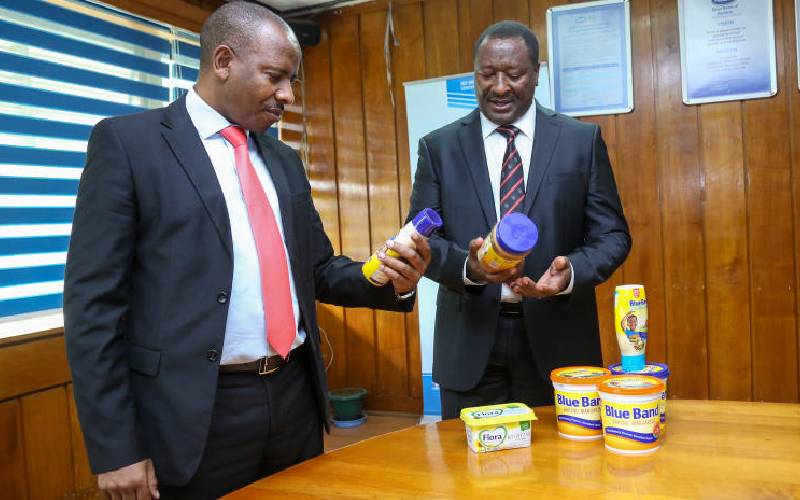×
The Standard e-Paper
Kenya’s Boldest Voice

Upfield makers of Blue band margarine, Managing director, Peter Muchiri (right), with Kenya Bureau of Standards (KEBS), Managing Director, Col (RTD) Bernard Njiraini, as they sample some of the products manufactured by Upfield. [Edward Kiplimo,Standard]
In my stint at the helm of the Kenya Bureau of Standards (Kebs) it has been clearer to me the sensitivity that comes with quality assurance.